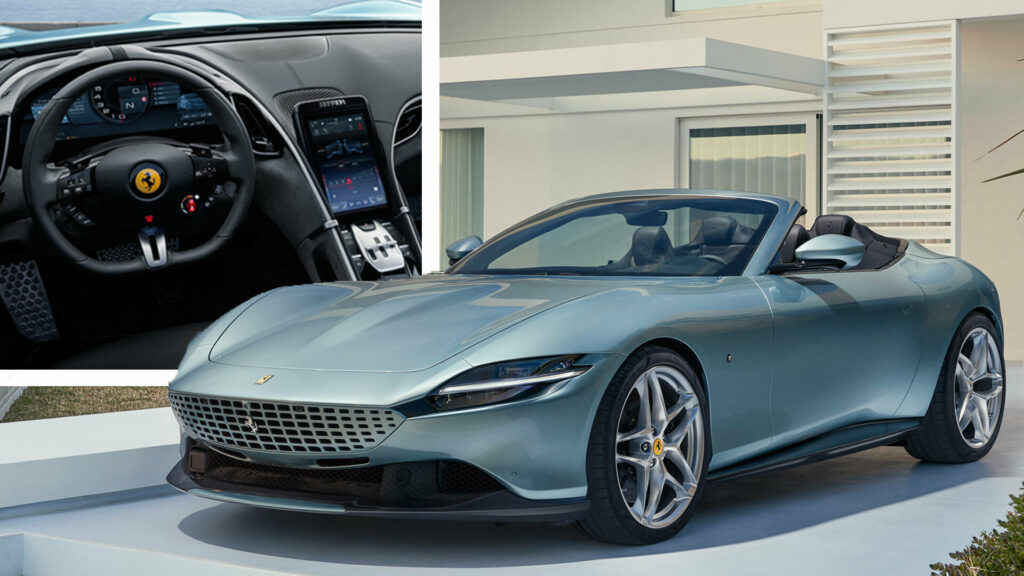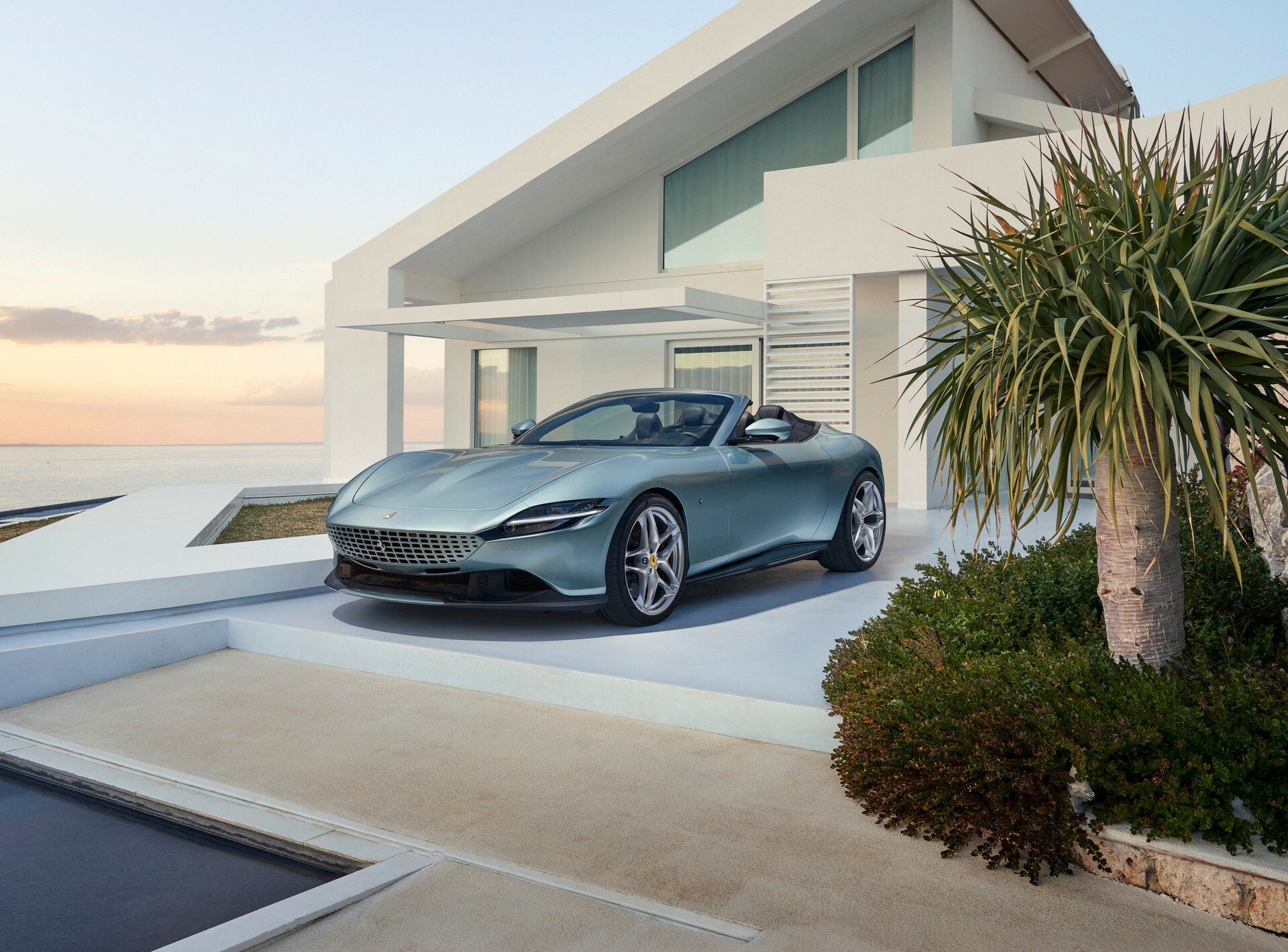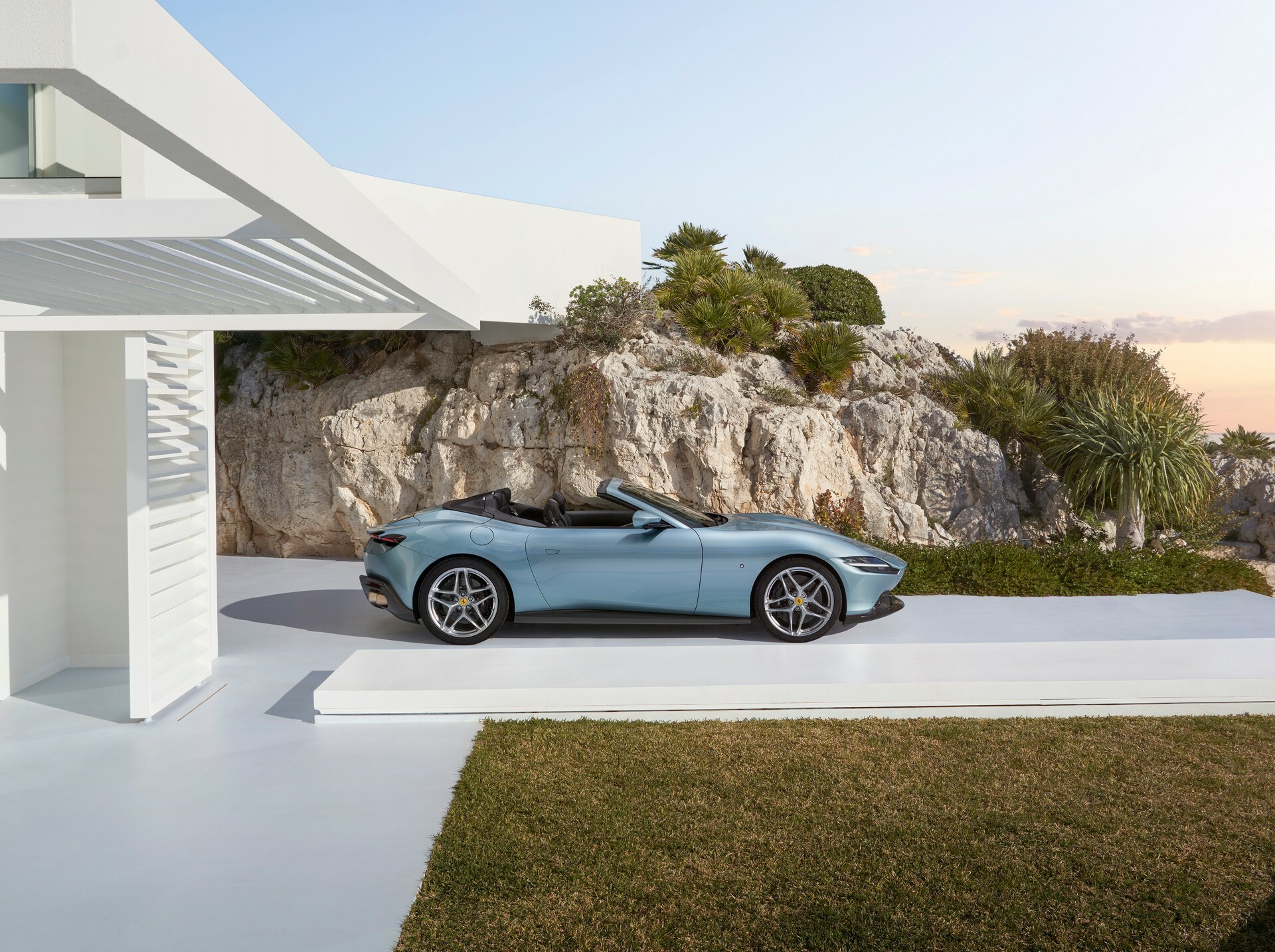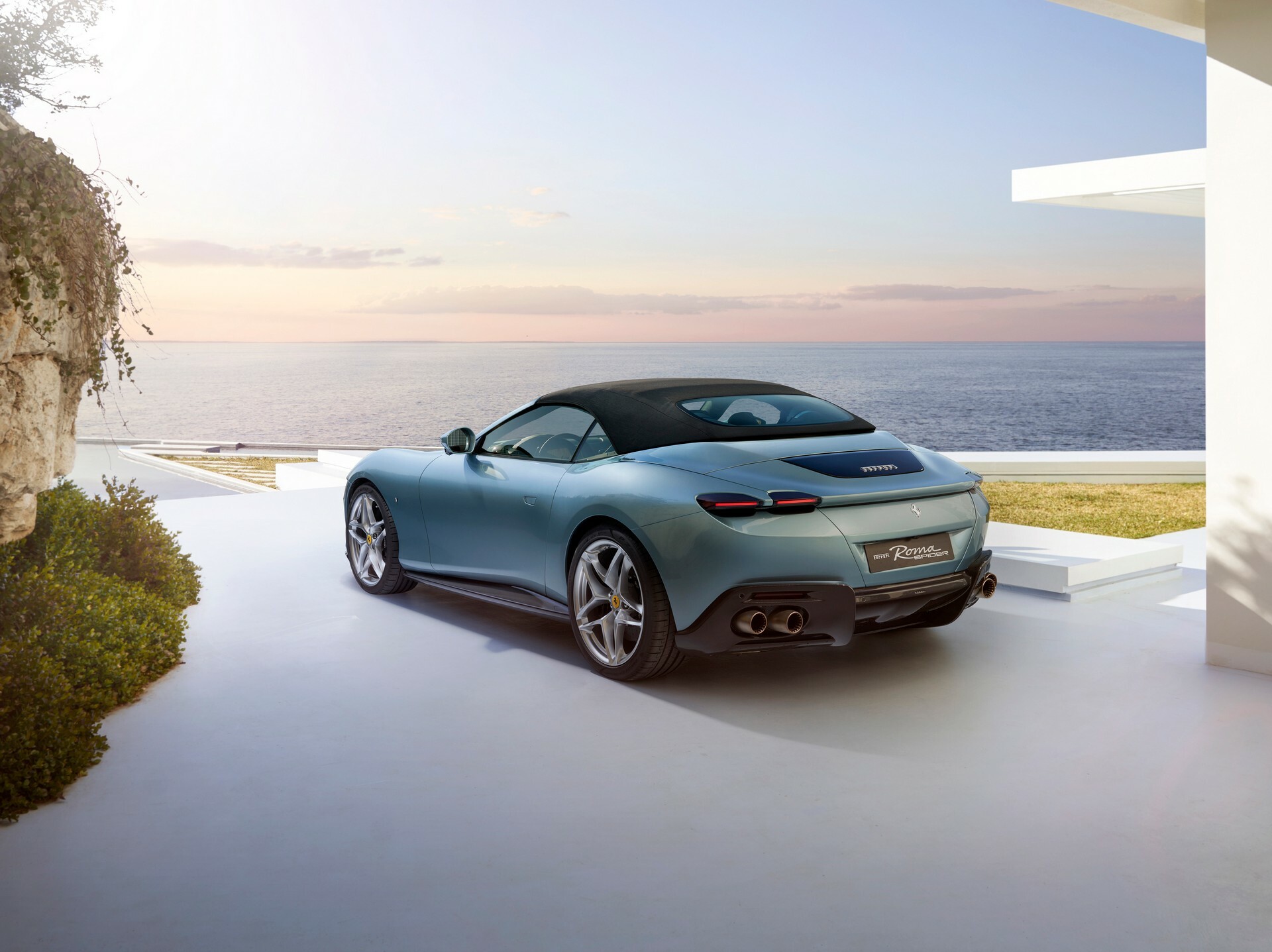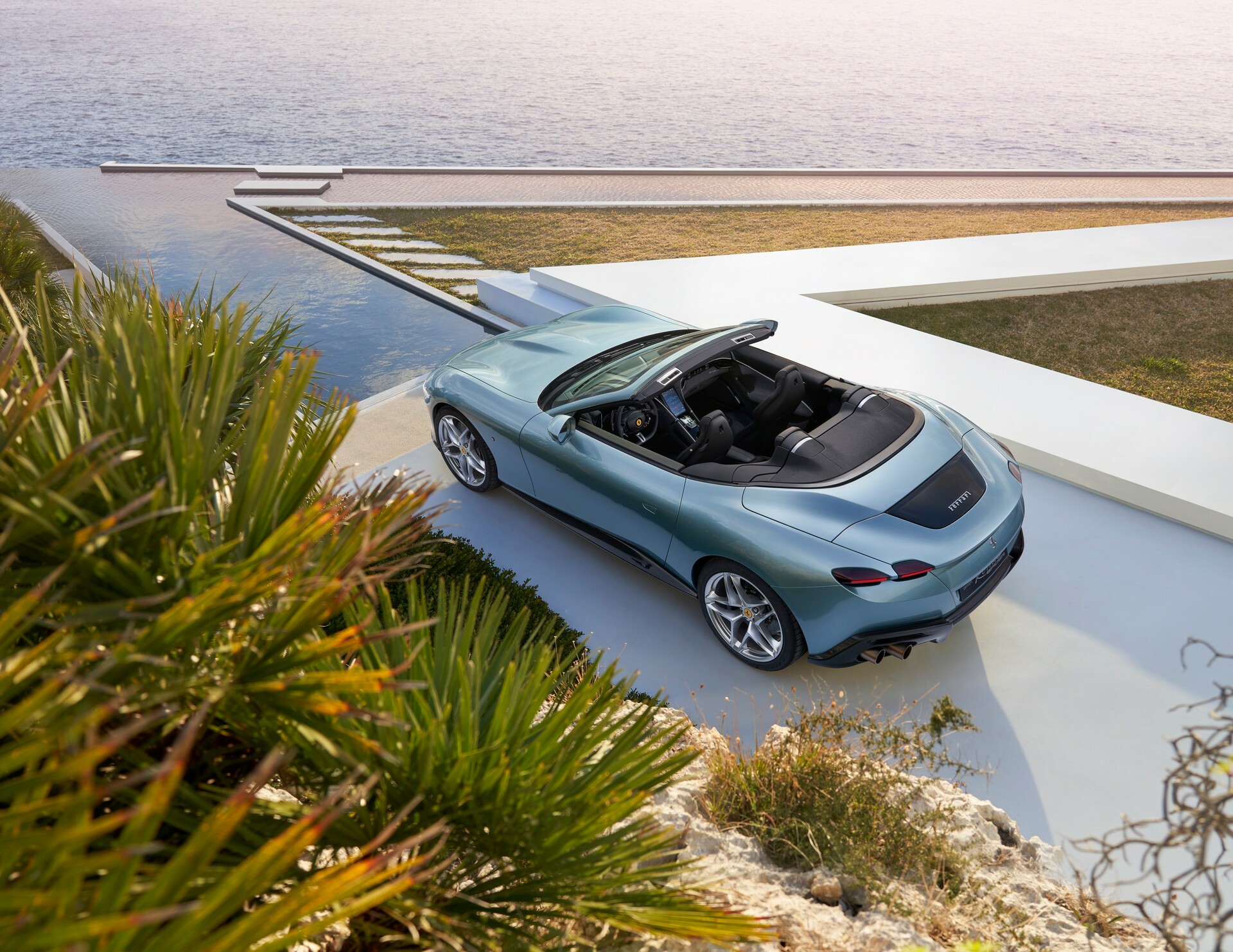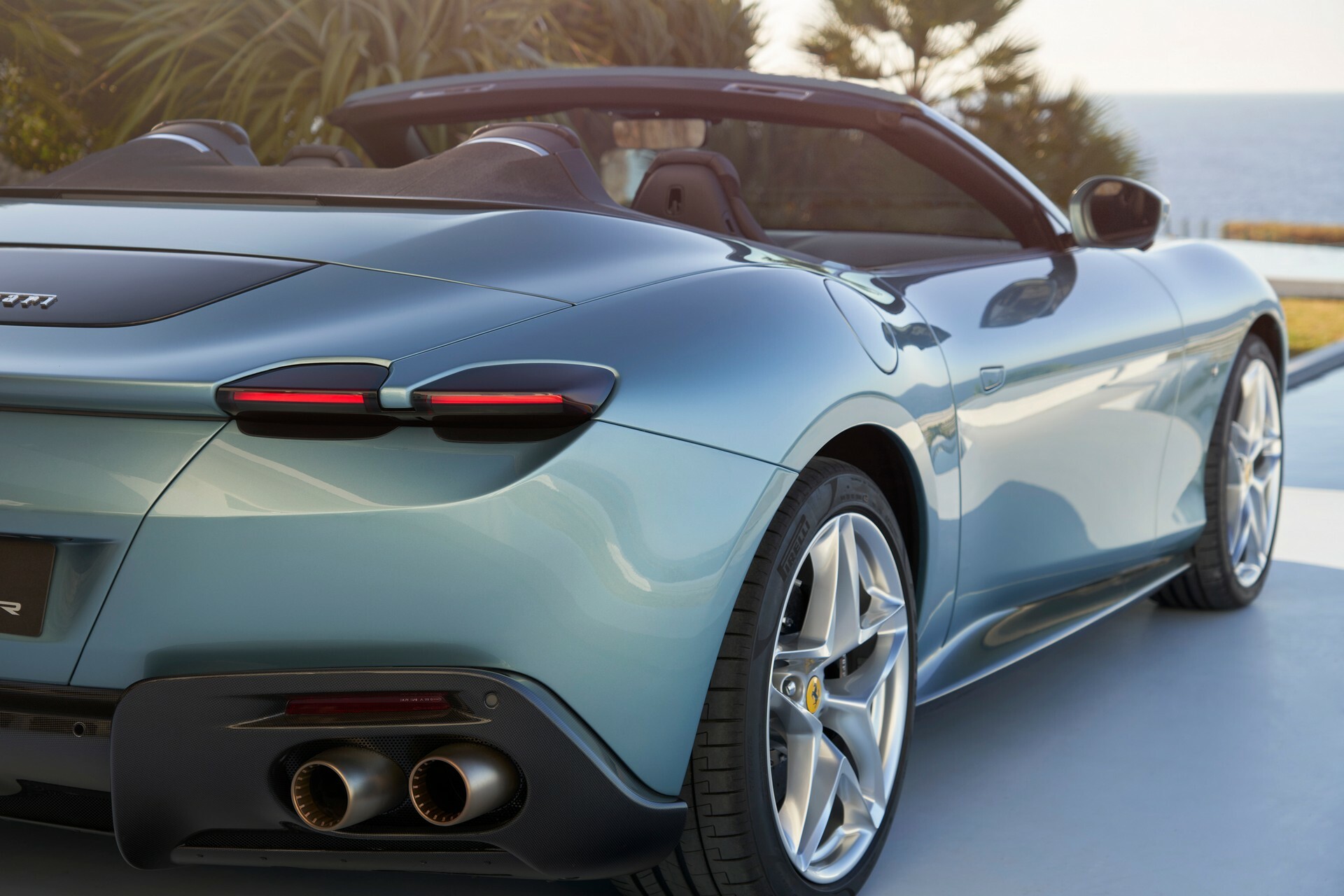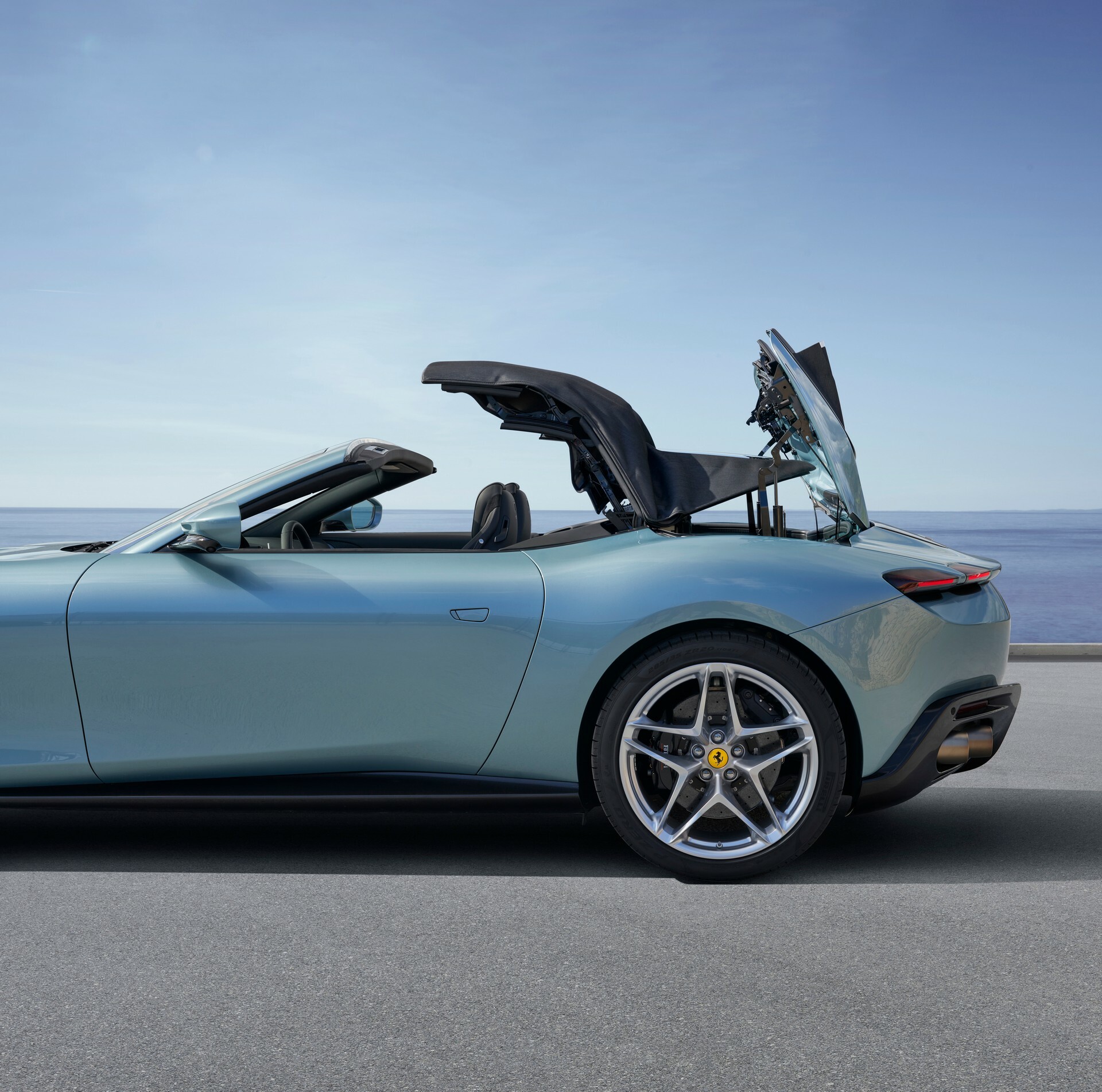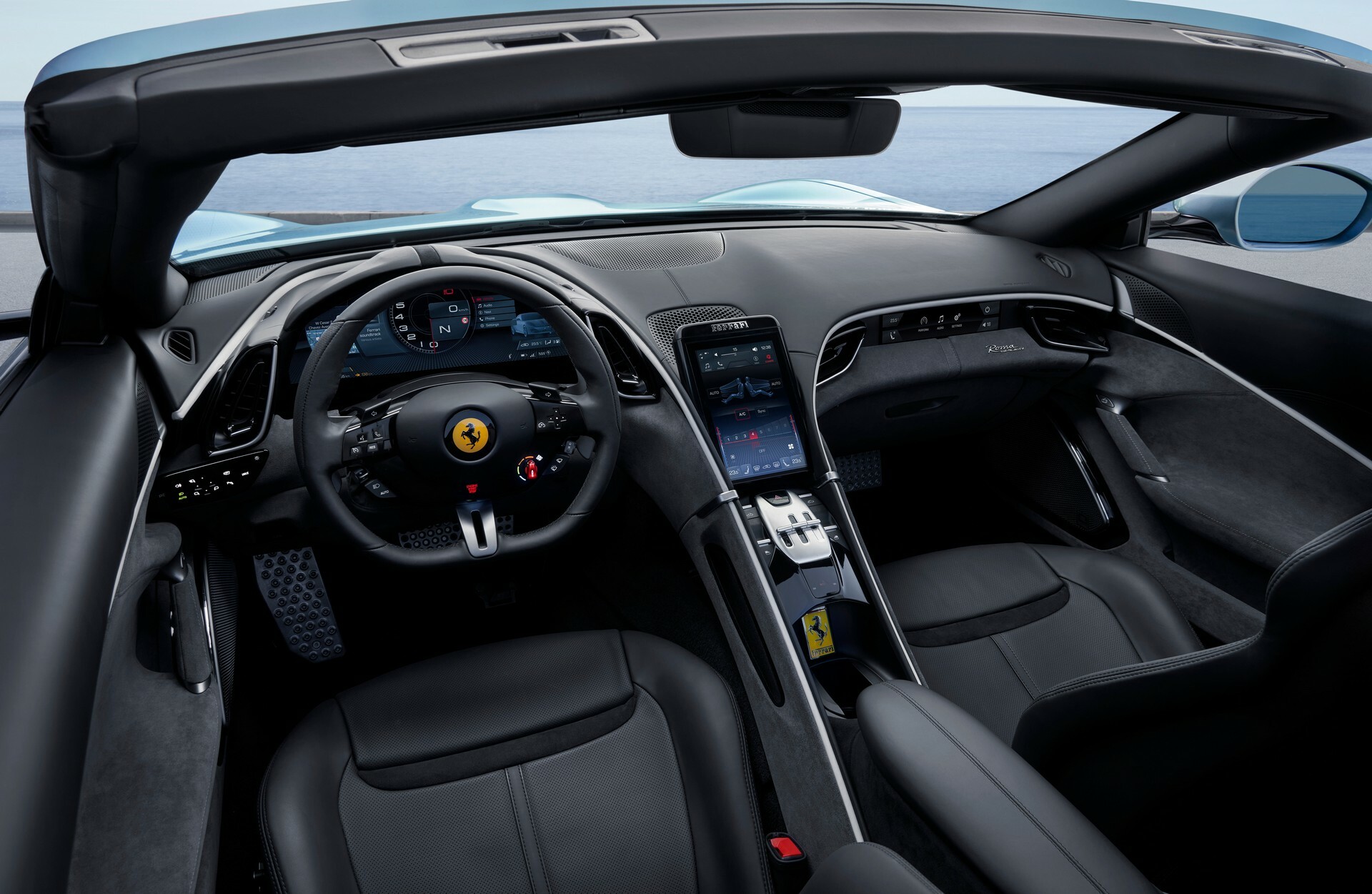Ferrari is living the “new sweet life” with the all-new 2024 Roma Spider, which has been unveiled at an exclusive event in Marrakesh.
Billed as a “contemporary take on the chic, pleasure-seeking Italian lifestyle of the 1950’s and 60’s,” the convertible follows in the footsteps of the coupe but adopts some innovations of its own.
There’s no better place to start than the soft top, which can be lowered in 13.5 seconds at speeds up to 37 mph (60 km/h). Given the car comes from the Prancing Horse, the top offers “extensive personalization options that include sophisticated, bespoke fabrics and contrasting stitching.” Interestingly, it’s the first front-engined Ferrari spider to use a fabric top since the 365 GTS4 from 1969.
More: Ferrari Fully Details The New 612 HP Roma Grand Tourer
Ferrari goes on to say the model has a “body-color band running across the base of the roof that divides the carbon fiber active spoiler from the roof and rear screen, creating a seamlessly integrated tonneau cover. When the soft top is lowered, the active spoiler visually connects with the rear bench and head rests.”
To keep owners comfortable with the roof down, the Roma comes equipped with a new wind deflector that is integrated into the backrest of the rear seat. Ferrari says it can be deployed at the touch of a button to ensure “exceptional in-car occupant comfort without taking up any space in the car.”
While convertibles are all about fun, Ferrari didn’t forget about practicality. As the company explained, the fabric top takes up less trunk space than a retractable hardtop and there’s a hatch in the rear backrest to allow for hauling longer items. Of course, you should keep your expectations in check as the trunk only holds 9 cubic feet (255 liters) of luggage.
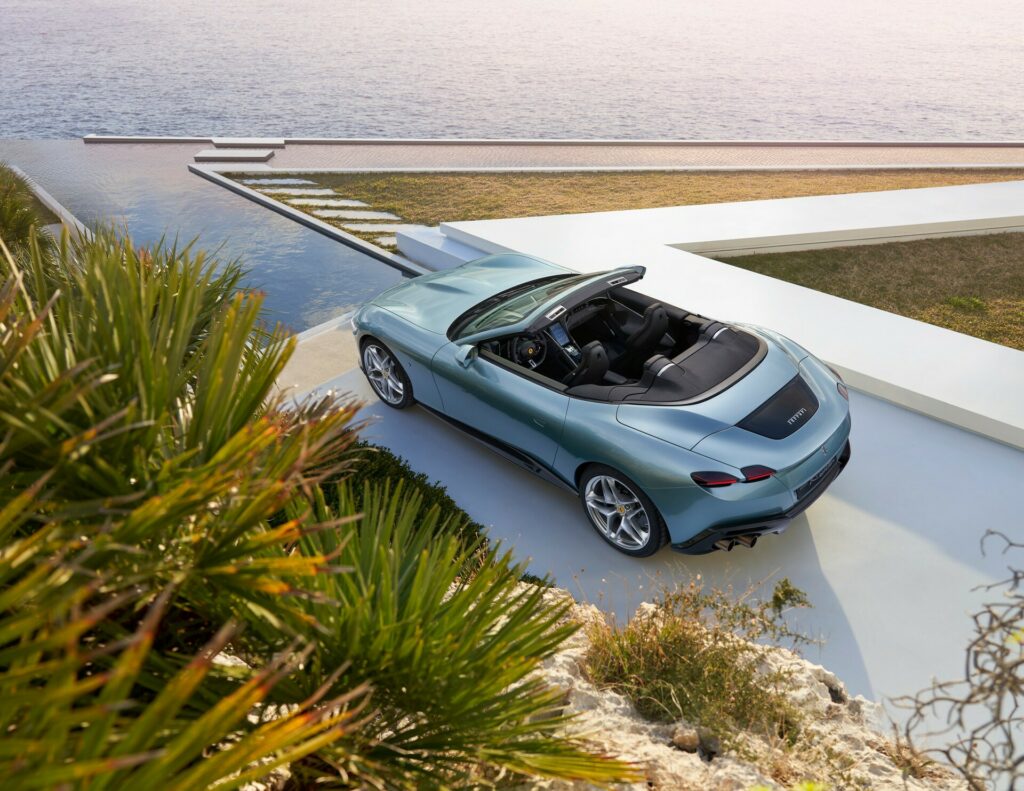
The rest of the car echoes the coupe and this means there’s a reductive design that eschews superfluous details. This even includes the Scuderia Ferrari side shields, which are a mainstay on most models.
Elsewhere, we can see LED headlights, flush-mounted door handles, and a body-color mesh grille. They’re joined by a voluptuous rear end with minimalist taillights, a diffuser, and a four-tailpipe exhaust system.
A Classy Cabin With A Passenger Side Display
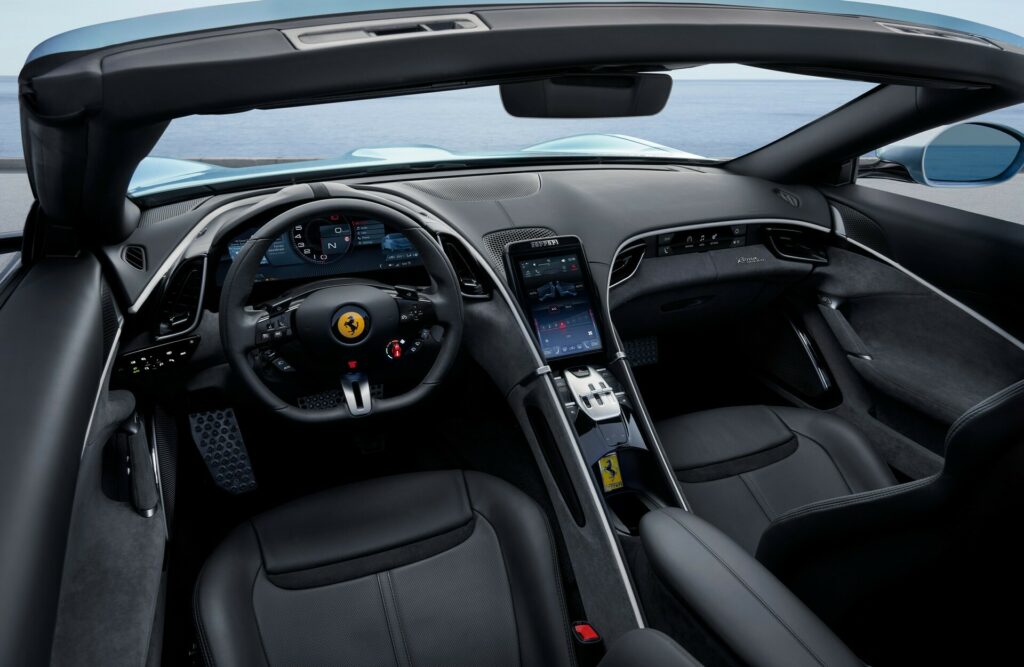
The cabin wraps around occupants and features a digital instrument cluster as well as an 8.4-inch infotainment system with a portrait orientation. The latter also boats wireless Android Auto and Apple CarPlay to make navigating a bit easier.
If that wasn’t enough screens, the convertible can be equipped with a slender 8.8-inch passenger display that shows performance and navigation information as well as climate control and entertainment settings. While the screen is somewhat basic, it enables passengers to become ‘co-drivers.’
While the interior is familiar, the convertible has a “further honed and refined” steering wheel. It features recessed touch controls, which should be far easier to find than the flat ones used on the coupe. Furthermore, the steering wheel-mounted ignition now features red backlighting to heighten the experience. Buyers can also get optional neck warmers for the 18-way heated front seats.
A Twin-Turbo V8 with 621 HP

Hitting the start button awakens a twin-turbo 3.9-liter (3,855 cc) V8 that develops 621 hp (456 kW / 620 PS) and 560 lb-ft (760 Nm) of torque. It’s connected to an eight-speed dual-clutch transmission, which enables the car to accelerate from 0-62 mph (0-100 km/h) in 3.4 seconds and hit a top speed in excess of 199 mph (320 km/h).
The engine features a flat-plane crank and the Roma sports Variable Boost Management technology, which “adjusts torque delivery to suit the gear selected.” The model also has a best-in-class weight to power ratio of 5.6 lb/hp (2.5 kg/PS) dry, thanks in part to an all-aluminum chassis.
The latter echoes the coupe, but adopts a rear sill inspired by the one used on the Portofino M. It’s bill as a “fundamentally important structural element” and should ensure the car remains rigid despite the loss of a fixed roof.




